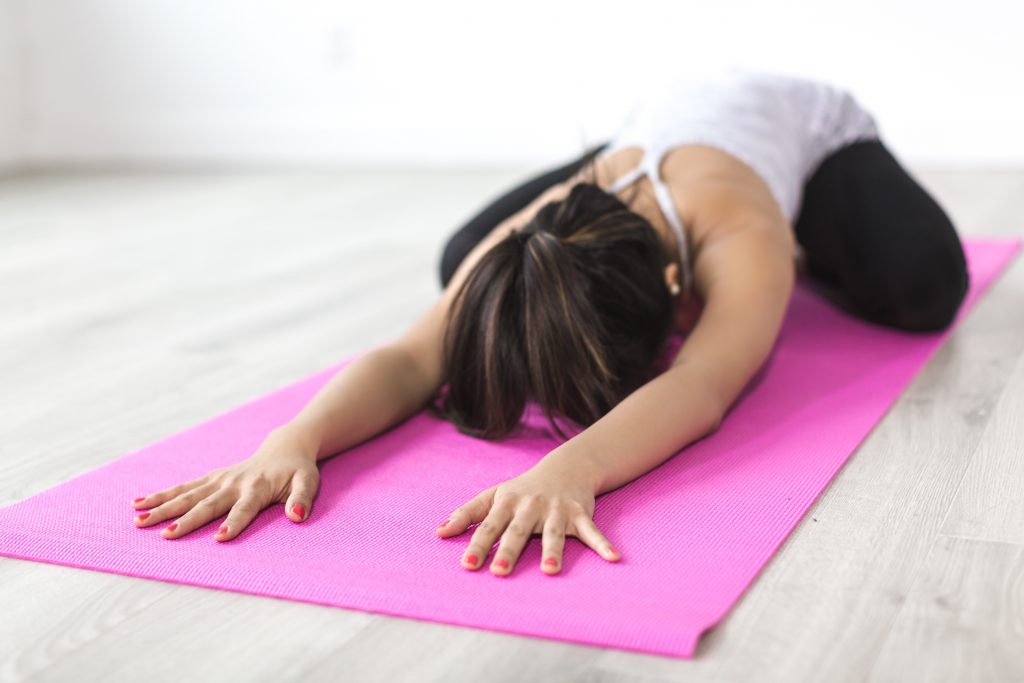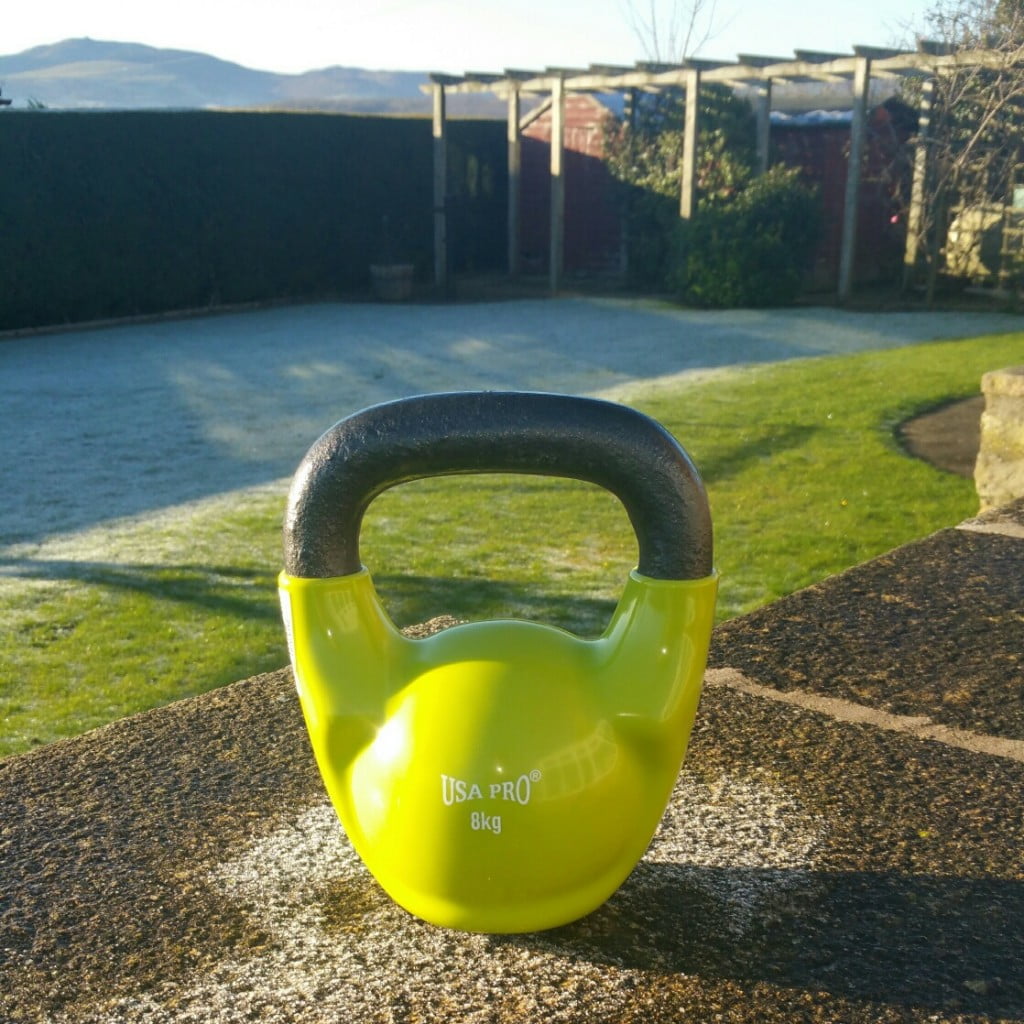Feeling stressed, anxious, or a bit low? You’re not alone. Research shows that regular exercise can significantly improve our mental health and emotional wellbeing. This article will guide you through the wide-ranging benefits of physical activity for your mind and body, from anxiety reduction to mood enhancement.
Ready to sweat out those worries? Let’s get moving!
The Mental Health Benefits of Exercise
Exercise releases feel-good hormones, improves sleep, enhances concentration and focus, boosts confidence and self-esteem, reduces stress and anxiety, provides opportunities to make new friends, increases memory and thinking skills, and enhances mood.
Release of feel-good hormones
Engaging in regular physical activity stimulates the release of feel-good hormones in your body. Exercise triggers an increase in endorphins, which are known as ‘feel good’ chemicals. They generate feelings of happiness and positivity while reducing pain sensations.
Dopamine and serotonin, crucial for mood regulation and boosting well-being, are also released during exercise. These biochemical changes not only improve physical health but also significantly boost mental well-being, effectively alleviating symptoms of depression and anxiety. So every time you work up a sweat or push through another set at the gym, remember that you’re doing wonders for both your physical fitness and emotional wellness!
Improved sleep
Engaging in regular physical activity vastly enhances your sleep patterns. It’s a natural, potent remedy for insomnia and other sleep-related disorders. Exercise does not have to be extreme; even gentle forms of exercise such as walking or yoga can support better sleep quality.
Whatever form of physical activity you choose, it helps regulate your body’s internal clock, known as the circadian rhythm. This, in turn, leads to more timed and restful sleep phases.
As mental wellbeing is tightly linked with quality snooze time, improved sleeping patterns keep you alert during the day while renewing psychological health at night. So pop on your trainers; prioritise exercise, and wave goodbye to those restless nights!
Better concentration and focus
Exercise boosts concentration. Regular exercise provides oxygen-rich blood to the brain, improving cognitive function and memory.
Exercise releases feel-good hormones that improve mood and focus by clearing mental fog. Exercise is a natural way to boost concentration and focus. You’ll be amazed at how productive and mentally alert you become.
Increased confidence and self-esteem
Regular exercise improves mental and physical health. Physical activity improves self-esteem and confidence.
Exercise releases endorphins, or “feel-good hormones.” Endorphins boost self-esteem and mood.
In addition to this chemical boost, setting goals and achieving them through exercise can boost self-esteem. Exercise can boost self-confidence, whether it’s a new gym personal best or a difficult walk.
Reduction in stress and anxiety
Regular exercise has been proven to significantly reduce stress and anxiety levels, making it an essential component for maintaining good mental health. When we engage in physical activity, our bodies release feel-good hormones called endorphins that help alleviate stress and boost our mood.
This natural emotional release not only helps us manage daily stresses but also promotes a sense of overall well-being. Exercise also relaxes tense muscles and reduces muscle tension, which are key symptoms of anxiety.
By incorporating regular exercise into your routine, you can effectively reduce both stress and anxiety while improving your mental well-being.
Opportunities to make new friends
Regular exercise not only benefits your physical and mental health but also provides opportunities to make new friends. When you engage in physical activity, whether it’s joining a fitness class or taking part in team sports, you have the chance to meet like-minded individuals who share similar interests.
This social interaction can lead to meaningful connections and friendships that provide emotional support and enhance your overall well-being. By exercising with others, you can create a sense of belonging and develop a support system that encourages you to stay motivated and committed to your exercise routine.
Boost in memory and thinking skills
Regular exercise not only benefits your physical health but also plays a crucial role in boosting your memory and thinking skills. Research indicates that engaging in physical activity on a regular basis can improve working memory, attention span, and cognitive abilities.
When you exercise, proteins are released in the brain that promote the growth of new neurons and enhance connectivity between different parts of the brain. This results in improved cognitive function, increased focus, enhanced learning abilities, and even longevity.
Enhanced mood
Regular exercise has a powerful impact on your mood, leaving you feeling uplifted and happier. This is because when you exercise, your brain releases endorphins that act as natural painkillers and mood boosters.
Not only does exercise reduce anxiety and stress, but it also helps regulate stress hormones in the body, leading to an overall sense of calmness and improved emotional well-being.
By incorporating physical activity into your daily routine, you can experience increased energy levels and decreased symptoms of depression or negative mood.
How to Get Started with Exercise
To get started with exercise, set realistic goals for yourself and choose activities that you enjoy. Gradually increase the intensity of your workouts and seek guidance from a professional if needed.
Setting realistic goals
To get started with exercise, it’s important to set realistic goals that will keep you motivated and help you achieve your desired outcomes. By setting attainable targets, you can avoid feeling overwhelmed or discouraged along the way.
Remember that physical fitness is a journey, not a destination. Start by assessing your current fitness level and identifying areas where you’d like to improve. Whether it’s increasing your endurance, building strength, or improving flexibility, be specific about what you want to accomplish.
Setting realistic goals also means considering your schedule and lifestyle. Find activities that fit into your daily routine and are enjoyable for you. This could be anything from going for a walk in the park during lunch breaks to attending group fitness classes after work.
Gradually increase the intensity of your workouts as you become more comfortable and confident in your abilities.
Choosing activities you enjoy
When it comes to exercise, choosing activities that you genuinely enjoy is key. Think about what types of physical activities bring you joy and make you feel good. It could be something as simple as going for a walk in nature, dancing to your favourite music, or playing a sport with friends.
By engaging in activities that you find enjoyable, you are more likely to stick with them and make them a regular part of your routine. This will not only help improve your physical fitness but also have a positive impact on your mental wellbeing.
Remember, exercise doesn’t have to be boring or feel like a chore – find what brings you happiness and incorporate it into your exercise regimen for maximum benefits.
Gradually increasing intensity
To get started with exercise and reap its mental health benefits, it’s important to gradually increase the intensity of your workouts. Research has shown that low-intensity aerobic exercise for 30-35 minutes, 3-5 days a week, can significantly boost positive moods.
So start off with exercises like walking or cycling at a comfortable pace and duration, then slowly amp up the challenge as you become more comfortable and confident. This way, you’ll avoid overwhelming yourself and reduce the risk of injury.
Remember, consistency is key when it comes to reaping the mental health benefits of exercise!
Seeking guidance from a professional if needed
It’s important to remember that seeking guidance from a professional can be incredibly beneficial when getting started with an exercise routine for mental health. They can provide not only expert advice on how to begin, but also ongoing support and motivation throughout your journey.
Research shows that regular physical activity has a profound impact on mental wellbeing, reducing symptoms of depression and anxiety while improving sleep quality and overall mood.
By consulting with a professional, they can help tailor an exercise plan to meet your specific needs and ensure you’re engaging in activities that are safe and effective for your mental health goals.
Being More Active Every Day
Incorporate physical activity into your daily routines, such as walking up the stairs instead of using the lift or walking instead of driving.
Incorporating physical activity into daily routines
Adding physical activity to your daily routine is a great way to boost your overall fitness and improve your mental health. Here are some simple ways you can incorporate more movement into your everyday life:
- Instead of taking the lift, opt for the stairs whenever possible. This simple change can help increase your daily activity levels.
- If you usually drive short distances, consider walking or biking instead. Not only will this save you money on fuel, but it will also give you a chance to get some exercise and enjoy the fresh air.
- Take advantage of breaks at work by going for a walk around the office or finding a nearby park to stretch your legs. This can help combat the negative effects of sitting for long periods of time.
- While watching TV or reading, try doing some light exercises such as squats, lunges, or arm stretches. These small movements can add up throughout the day and keep you active even when relaxing.
- When running errands, park farther away from the entrance so that you have to walk a bit more. This extra movement may seem insignificant, but it can make a big difference in overall activity levels.
- If possible, choose active transportation options like walking or cycling when commuting to work or school. Not only will this contribute to your physical fitness, but it can also be an enjoyable and refreshing way to start your day.
Desk exercises or stretches
Incorporating desk exercises or stretches into your daily routine can have a significant impact on your mental health and overall well-being. Here are some simple but effective ways to stay active even while sitting at your desk:
- Neck rolls: Gently roll your neck from side to side and forward and backward to relieve tension in your neck and shoulders.
- Shoulder shrugs: Lift your shoulders up towards your ears, hold for a few seconds, and then relax. Repeat this exercise several times to release any built-up tension.
- Wrist stretches: Extend one arm forward with the palm facing up. Use your other hand to gently bend the fingers of the extended arm back towards you until you feel a stretch in your wrist and forearm. Switch arms and repeat.
- Seated spinal twist: Sit tall in your chair and place one hand on the opposite knee. Twist your torso gently towards that hand while keeping your head aligned with your spine. Hold for a few seconds, then switch sides.
- Leg extensions: Sit at the edge of your chair, extend one leg forward, and hold for a few seconds before bringing it back down. Repeat with the other leg.
- Ankle exercises: Rotate each ankle clockwise and anticlockwise to increase blood flow and prevent stiffness.
Engaging in household chores
Incorporating physical activity into your daily routine doesn’t always have to mean hitting the gym or going for a run. Engaging in household chores is an excellent way to be more active every day.
It may surprise you, but tasks like vacuuming, cleaning, or gardening can contribute to your daily physical activity and have a positive impact on your mental health. Research shows that engaging in household chores is associated with being more active every day, helping maintain positive mental health and emotional wellbeing.
So next time you tackle those dishes or tidy up the living room, remember that you’re not only keeping your home clean but also taking care of your mind and body at the same time.
Overcoming Obstacles to Exercise
Lack of motivation or time can make it difficult to prioritise exercise in your daily routine, but finding activities that you truly enjoy and setting realistic goals can help overcome these obstacles.
Lack of motivation or time
Finding the motivation to exercise can be a struggle, especially when you’re already juggling a busy schedule. But here’s the thing – making time for physical activity is essential for your mental health.
Research has shown that regular exercise can reduce symptoms of depression and anxiety, improve mood, and boost self-esteem. So how do you overcome the lack of motivation or time? Start by setting realistic goals and choosing activities that you enjoy.
Gradually increase the intensity of your workouts and seek guidance from a professional if needed. Remember, even small amounts of exercise can make a big difference in your overall well-being.
Physical limitations
It’s important to acknowledge that physical limitations can sometimes be a barrier to engaging in regular exercise. However, it’s crucial to remember that everyone’s journey is unique, and there are ways to adapt and find activities that suit your abilities.
Physical activity doesn’t always mean intense workouts or running marathons; it can also include gentle exercises such as yoga or swimming. Even small steps like taking short walks or stretching regularly can have significant benefits for your mental health.
Find activities within your comfort zone and enjoy the positive impact they can have on your emotional wellbeing and overall mental health.
Strategies to overcome barriers
When it comes to incorporating exercise into your routine, there may be a few obstacles that you need to overcome. But don’t worry – with the right strategies, you can conquer these barriers and make physical activity a regular part of your life.
Here are some tips to help you get started:
- Make it a priority: One of the biggest barriers to exercise is often a lack of time. To overcome this, try scheduling your workouts like any other important appointment. Set aside specific times in your calendar dedicated to physical activity, and treat them with the same level of importance as you would a work meeting or social event.
- Break it down: If finding large chunks of time for exercise seems impossible, break it down into smaller, more manageable segments throughout the day. Even short bursts of activity can add up over time. Aim for at least 10 minutes of exercise several times a day – whether it’s taking a brisk walk during your lunch break or doing some quick stretches before bed.
- Find accountability: Lack of motivation can be another barrier that prevents people from sticking to an exercise routine. To combat this, find someone who can hold you accountable – whether it’s a workout buddy, a personal trainer, or even an online community. Sharing your goals with others and having someone check in on your progress can help keep you motivated and committed.
- Start slow and build gradually: Feeling overwhelmed by the thought of intense workouts? Don’t push yourself too hard too soon. Start by incorporating low-impact activities into your routine, such as walking or swimming. Gradually increase the intensity or duration as you feel more comfortable and confident.
- Make it enjoyable: If you dread exercising because you find it boring or monotonous, choose activities that you genuinely enjoy. Whether it’s dancing, playing a sport, or hiking in nature – finding activities that bring you joy will make it easier to stick with them in the long run.
- Focus on the benefits: Remind yourself of the positive impact that exercise has on your mental health. Regular physical activity can help reduce stress, boost mood, and improve sleep. By focusing on these benefits, you’ll be more motivated to overcome any barriers that stand in your way.
Conclusion
Exercise is not only crucial for physical fitness but also plays a vital role in promoting mental wellbeing. The release of feel-good hormones, improved sleep, better concentration, and reduced stress are just a few of the many benefits that exercise offers.
By incorporating exercise into our daily routines and seeking professional guidance when needed, we can experience an overall improvement in our mental health and lead happier lives.
FAQs
1. How does exercise contribute to improved mental health?
Regular exercise can release endorphins, which are natural mood-boosting chemicals in the brain. It also helps reduce stress, improve sleep quality, and increase self-confidence, all of which have a positive impact on mental health.
2. What types of exercises are best for improving mental health?
Any form of physical activity can be beneficial for mental health, but aerobic exercises like running, swimming, or cycling have been shown to have particularly positive effects. However, it’s important to find activities that you enjoy and that fit your individual preferences and abilities.
3. How often should I engage in exercise to experience the mental health benefits?
To reap the benefits for mental health, it is recommended to engage in at least 150 minutes of moderate-intensity aerobic exercise or 75 minutes of vigorous-intensity exercise per week. This can be spread out over several days and can include activities like brisk walking or dancing.
4. Can exercise replace other forms of treatment for mental health conditions?
Exercise should not be seen as a replacement for other forms of treatment such as therapy or medication if prescribed by a healthcare professional. However, it can complement these treatments by providing additional support and contributing to overall wellbeing. It’s essential to consult with healthcare professionals regarding an appropriate treatment plan based on individual needs.










2 comments
What a fantastic post, your tips on the importance of exercise for mental health couldn’t have come at a better time. It’s like you peeked into my mind and put my thoughts into words.
I’ve always believed in the magic of endorphins, but your breakdown of how they function as natural mood boosters is just what I needed. It’s amazing how something as simple as a jog or a dance session can turn a gloomy day around.
Your post got me thinking about ways to enhance the mental health journey, and guess what I stumbled upon? A gem of a resource at Calmerry: https://calmerry.com/self-esteem-therapy/
where therapists offer self-esteem therapy that aligns perfectly with your discussion. I believe combining exercise with such therapy can be a game-changer for anyone looking to boost their mental well-being.
Kudos to you for championing this cause and sharing practical insights. It’s refreshing to see someone tackle the importance of mental health with such enthusiasm. Looking forward to more eye-opening content from you!